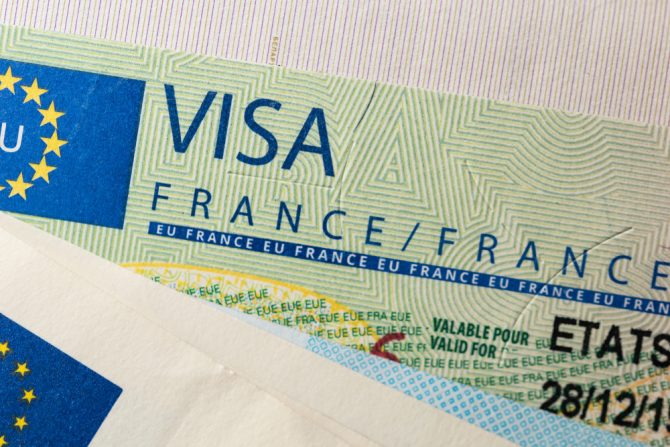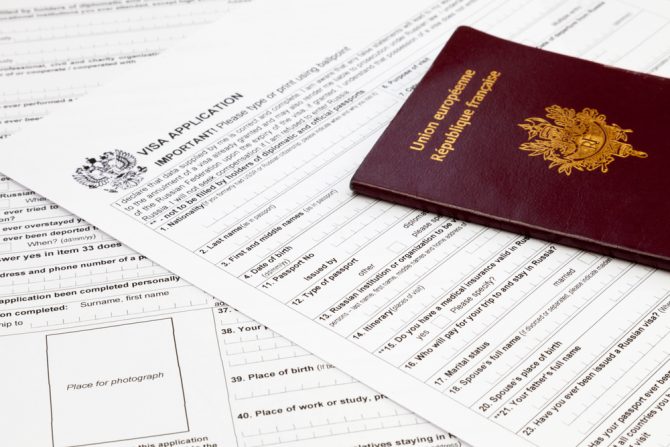Guide to Visas and the Carte de Séjour

Now the UK is no longer part of the EU, British nationals wanting to stay in France for longer than 90 days in 180 need to apply for a visa. Catharine Higginson explains how the system works and how to apply for a residence permit or carte de séjour
Since the United Kingdom’s departure from the European Union, British citizens wishing either to live in France or visit on a long-term basis, have been required to obtain permission to stay. This has long been the case for third country nationals (i.e. non-EU citizens) and although the process can be time-consuming and require a considerable amount of documentation, it is entirely possible to do.
The days when the most stressful part of moving to France was the packing are over and making sure that you will be allowed into the country should be part of the very start of the planning process. Any stay in France which exceeds 90 days now requires one of two visas: either a long-stay visa or visa de long séjour valant titre de séjour (VLS-TS) or a visa de long séjour temporaire (VLS-T) for stays between three to six months. Both of these must be applied for in advance, whatever the planned length of your stay.
Different types of visas in France
Should you then decide to extend your stay beyond the period of validity of your visa, you must either renew your visa or apply for a residence permit. These are generally referred to as une carte de séjour or CDS (as you will be issued with an actual card) although titre de séjour will also be marked on the card. Renewing a visa is not necessarily the simplest option; renewals are not always automatically granted and in some cases you may even need to return to the UK to make the application.
During its period of validity, the long-stay visa is equivalent to a Schengen visa, enabling you to move around and stay in the Schengen Area outside France for periods not exceeding 90 days over any period of 180 consecutive days, under the same conditions as if you held a Schengen visa.
Holding a VLS-TS means that you do not need to contact the local préfecture when you arrive and request a carte de séjour as these visas are generally issued to students, salaried workers with permanent contracts or the spouses of French nationals, and in these cases, there is an assumption that those concerned will have sufficient resources.
However, you do need to validate and pay for the privileges that this visa confers (freedom of movement within the Schengen zone and your status considered as being a case of séjour régulier – in other words having the right documents as a foreign national to live in France). You can do this online (see here).
Should your visa state carte de séjour à solliciter à l’arrivée en France, this allows you to enter France and then apply for a carte de séjour at the préfecture or local administrative centre. Depending on the individual situation, a carte de séjour with validity ranging from one to 10 years will then be issued. These visas are usually granted to family members of French nationals, people who are retired, salaried employees, seasonal and independent workers and their families.
For visitors aged between 18 and 35 and from certain countries, most notably Argentina, New Zealand and Canada, a reciprocal agreement exists and allows the holder to live and work in France for up to a year without applying for a CDS. Under-18s are also exempt from the CDS requirement if they are coming to France to study for a period longer than three months and their parents live overseas. In this case, the child will be issued with a visa mineur scolariséen France, which is valid for a maximum period of 11 months and allows unlimited entry into France during this period.

Shutterstock
Visa wizard makes the process easier
Other people who come to France knowing that they plan to stay for more than three months may be covered by the visa de long séjour temporaire– or temporary long-stay visa. Its validity is from four to six months and it provides temporary authorisation to stay in the country.
These are issued to those on short-term contracts, artists or long-term visitors who can demonstrate that they have sufficient resources to support themselves during their stay. No CDS is required but the holder must leave France when the visa expires.
The visa de long séjour permits holders to settle in France and depending on their situation – i.e. employed, students, family members of French nationals or other nationalities with permanent residence status – different paperwork is required. With numerous types of visas available and the huge variation in individual circumstances, navigating the process can be a minefield! Thankfully, the French government has created a very user-friendly website, in English, where you can quickly work out exactly which type of visa you need to apply for and see the paperwork required to apply for the visa itself.
The Visa Wizard site (see here) is extremely helpful and provides all the necessary information on the application process itself and the paperwork that you will need to supply to validate your visa after arrival.
What happens on arrival in France?
On arrival be prepared to show your visa (if required) along with any supporting documents such as proof of accommodation covering the duration of your stay. This could be a gîte or hotel reservation, proof that you are staying with a relative, or proof of home ownership, for example. You might also need to show sufficient financial means and/or a return ticket or the financial means to acquire one at a later date.
If the trip is for work purposes, you may be asked for professional details such as the name of the company or the organisation which is expecting you.
You must also have an insurance certificate covering all medical and hospital expenses for which you may be liable for the duration of your stay in France, as well as medical repatriation costs and expenses in the event of death.
Having medical insurance in place is an absolutely vital element when it comes to validating your visa and/or applying for an eventual CDS. According to Fabien Pelissier, founder and owner of leading French broker Fab French Insurance, the majority of applications which are rejected are due to the applicant having insufficient medical cover in place.
He explains: “Basically, to be ‘embassy proof’ for a VLS visa, the insurance certificate should mention that the cover date matches or even exceeds those mentioned in the VISA application. All too often the end date is before the visa’s expiry date and this is a no-no!
“However, if it states that it is a policy with an automatic renewal element, this should be acceptable. The insurance certificate shouldn’t mention any medical exclusions or any excesses or deductibles and it should also include cover for public liability within the EU in addition to repatriation.
“And last but definitely not least, it should clearly state that medical claims are covered rather than just accidents and hospitalisation”.
Companies like Fab French Insurance, Please help and French Connections HCB offer assistance with the entire visa application process and carte de séjour paperwork. It is well worth considering using these types of services as it takes away much of the hassle and leaves you free to organise the more enjoyable aspects of your trip to France!
Looking for more like this?
The unique mix of legal, financial and tax advice along with inspiring in-depth location guides, real life stories, along with the ‘Living France’ section that features an in-depth ‘Where to live guide’ plus the ‘Guide to…’ series covering all the essentials of life in France, makes French Property News magazine a must-buy publication for anyone serious about buying in and moving to France.
FrenchEntrée is your go-to resource for buying property and living in France – make the most of the comprehensive Buying in France and Living in France guides
Lead photo credit : Shutterstock
Share to: Facebook Twitter LinkedIn Email
More in Living in France, Visas


